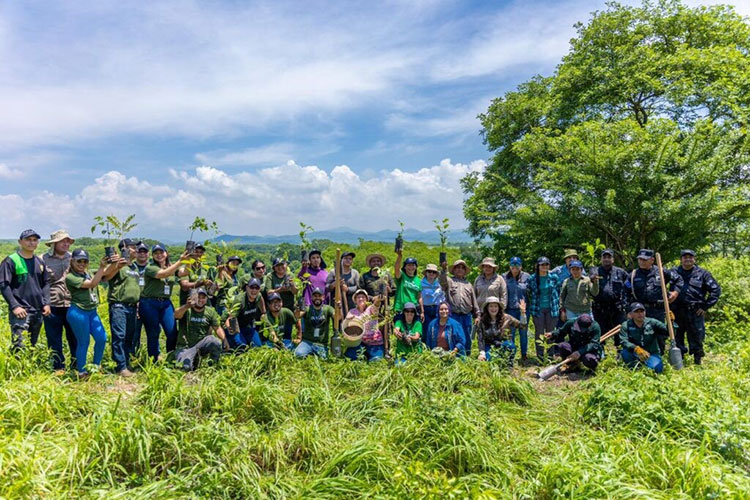Called “Lempa Vivo”, the project promotes the importance of the conservation, restoration and sustainable use of ecosystem services generated by the Lempa River and the four wetlands of the lake Guija’s lagoon complex.
ISCOS works in collaboration with the Ministry of the Environment and Natural Resources (MARN) and other partners drawn from the countries’ academic and civil society. Several active partners are involved in carrying out the project and these include the University of El Salvador, the National Administration of Aqueducts and Sewerage Systems (ANDA), the Lutheran University of El Salvador, Monseñor Romero University, the Environmental Investment Fund of El Salvador (FIAES), the Fire Brigade of El Salvador, the Municipal Environmental Units, and FUNDESYRAM, an NGO specialised in agroecology.
“All the actions to recover the Lempa river basin are important and, in this sense, the Lempa Vivo project means concrete actions for the sustainability of the natural resources of this basin”, said Miguel Ángel Hernández Martínez, coordinator of the Faculty of Geological Engineering at the University of El Salvador. “A lot of work is needed in the recovery of natural resources and, in this sense, ISCOS has been a great development partner in environmental issues for many years,” he added.
The project is structured along three areas of work:
1. Enhancing ecosystem services.
2. Strengthening environmental governance.
3. Reinforcing MARN’s institutional functionality, through training on environmental legislation and strengthening the ministry’s central role in ensuring effective governance and community engagement.
Lempa Vivo also promotes the exchange of experiences among the four wetlands to encourage best practices across the different territories, as well as sharing insights on the workings of the respective local committees that provide consultations for each territory.
“The water systems in Suchitoto have a good organisational structure, and the drinking water service is a quality service. However, in Metapán, where the water systems have private owners, there is a weakening of leadership compared to Cerrón Grande. We also have the big problem of the Metapán lagoon: it used to be a beautiful 5.7m-deep lake, but now it is only 1.3m; it is practically extinct. We hope that this project will strengthen us from this point of view” said Nahún González, technician of the Metapán Environmental Unit.
In recent weeks, 120 Family Production Units were launched. These families have received one hectare of land each to ensure their food security while producing food in a diverse and agroecological manner.
Find more information regarding the efforts of trade unions to support workers’ rights in El Salvador and their representation within the context of the 2030 Agenda on the ITUC website and its Global Rights Index. Additionally, the online media Equal Times offers comprehensive coverage, shedding light on the ever-evolving dynamics of workers’ rights in El Salvador and worldwide.


